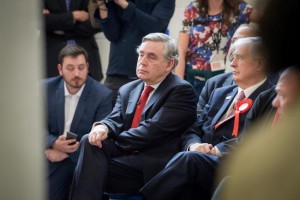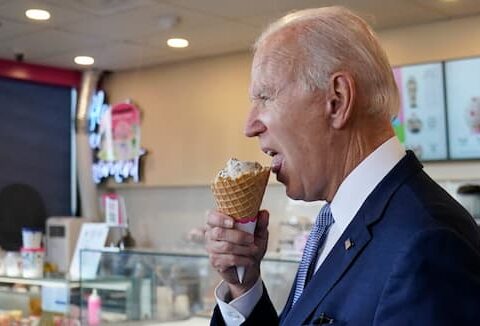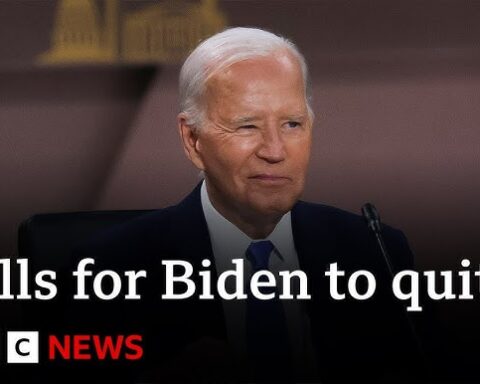“What just happened?” one devastated voter writes in a letter to The Independent, trying to come to terms with the 2015 General Election outcome. He concludes that was just happened was “Nothing short of an Establishment coup.”
That wouldn’t necessarily be an exaggeration. This is a very serious generational moment (of crisis) with major implications for society, for social cohesion, for common welfare and for the United Kingdom itself.
A forlorn Nick Clegg warned in his resignation speech on Friday morning, “The continued existence of our United Kingdom itself is now in grave jeopardy…”
I may end up quoting that Nick Clegg speech a few times in the coming years, I imagine; as it was probably the most significant and the most honest speech I’ve heard from a British politician in a long, long time, and it summed up the present state of affairs perfectly.
What has essentially happened in this 2015 General Election is this: at a time and era of unparalleled anti-Establishment feeling, grass-roots activism and disenfranchisement with the system, the Establishment has won an unprecedented victory, cemented its hold on power and ensured years of further alienation and polarisation in this society to come, while virtually all semblance of ‘The Left’ has been swept into the sea.
“We cannot allow decent, liberal values to be extinguished overnight…” a worried Nick Clegg said in his resignation speech.
Because the overwhelming sense of the rather astonishing election results yesterday is that the Left has been routed out of parliament and that the Right or Centre-Right is now in a position to dominate the UK with far less political opposition. Without even having the Liberal Democrats there anymore to provide a level of balance (however real that ‘balance’ was in practice), a Conservative government now has five more years to prop up corporate interests, serve the needs of a decaying, criminal financial/banking system, further alienate huge sections of the population (leading to more unrest and disenfranchisement), and further polarise society not just in Scotland but in England too.
This outcome of this election is a big deal. As this Politico article puts it; ‘2015 will go down as one of those rare seminal years in British history, when Everything Changed, alongside 1066 (the Norman Conquest); 1215 (the Magna Carta); 1531 (Henry VIII’s break with Rome); 1649 (the regicide of Charles I); 1688 (the Glorious Revolution); 1877 (the declaration of old Vic as Empress of India); 1945 (the start of the Welfare State); and 1973 (the accession to the European Economic Community).’
This is primarily in reference to Scotland and to the reflexive rise also of ‘English nationalism’ in response to popular Scottish wishes for more autonomy from the Corporation of London; but the possible dissolution of the UK is only one part of the danger and actually it could also more broadly apply to the political and social state of England and of the UK as a whole too.
Not to mention, I suspect, that UKIP will now force the Conservatives to reevaluate whether Britain should even remain in the European community.
It is, in basic terms, a bad day for liberals and progressives everywhere, whichever party they support, and also a bad day for the socially immobile, the struggling, the homeless, the disabled, cancer patients and the ill, and the generally marginalised sections of society.
It it also a bad day for any sense of even national unity, let-alone the unity of the UK.
But this apparent ousting of The Left is far more serious an issue than the BBC, Sky News and the other TV broadcasters were properly willing to acknowledge: it is possible the Liberal Democrats are shattered for generations as a serious force, and it is equally possible that Labour has ‘lost Scotland’ for a long time. If Scotland does move towards independence, then Labour will in fact have lost Scotland forever, and without Scotland it is conceivable (if not necessarily an absolute) that Labour will simply be unable to mobilise enough support against the Conservatives for successive elections.
This will be even more the case if the growing ‘English nationalist’ sentiment continues to develop in response to affairs in Scotland; as well as the growing right-wing anti-European populist movement. That is a nightmarish vision of the future.
Labour has taken a massive blow, while the Liberal Democrats have been decimated in the UK. They’ve gone from unprecedented success in 2010 to unprecedented, crushing defeat in 2015; because in liberal terms, they made a pact with the Devil. It wasn’t the u-turn on tuition fees that was the major problem in my view, as that was more a result of coalition-politics compromise (and was brought in by Tony Blair and not the Lib Dems), but it was the fact that Clegg had the power to avoid a coalition with the Conservatives.
That’s what too many people forget: Clegg and the Lib Dems weren’t forced into a reluctant coalition with the Conservatives, but had the option of forming a coalition with Gordon Brown and Labour in 2010. Indeed, Brown was feverishly trying to negotiate a deal with Clegg and the Lib Dems. The damning thing is that, as I recall, Clegg admitted one of the main reasons he chose to support the Conservatives instead of Labour was because he personally disliked Gordon Brown.
Well, are personal dynamics really a sound basis for making such a decision and determining how the country was to be governed for five years? By entering into partnership with the Conservatives, Nick Clegg can be said to have compromised his entire party and its supporters: because he had *the choice* to work with Labour instead.
In so doing, he did in effect contribute – unwittingly – to the collapse of liberal politics in the UK, which has been demonstrated in this 2015 election. And while Clegg has held his own constituency (just about), the rest of his party’s senior MPs have paid the price for that Lib Dem propping up of the Tory government, losing their seats (and therefore their influence) in vast numbers, even poor old Charles Kennedy (one of the few genuinely honest and decent politicians we have left) who’d managed to hold his constituency for decades.
Commentators are saying it will take “generations” for the Liberal Democrats to recover any credibility and “decades” to recover the ground they’ve lost. When I watched Paddy Ashdown on the BBC, I felt like I was watching a Greek tragedy.

Another related point is that the Scotland issue that has played so decisive a part in this election result might’ve looked very different had Gordon Brown remained in office these passed five years; which is another direct consequence of Nick Clegg’s decision to prop up the Conservatives instead of Labour. It is widely acknowledged that it was Brown’s intervention last year that had a major influence on Scotland’s vote to remain part of the UK. David Cameron and the Conservatives, on the other hand, seemed to forget the Scotland issue entirely and it was only literally at the very last minute that they rushed up to Scotland to try to prevent Scottish independence (and even after that, Cameron and the Conservatives treated the Scottish nationalists with derision instead of understanding).
Gordon Brown and Labour, on the other hand, would’ve probably been much more invested in the Scottish issues, for one thing because of the essential Labour support in Scotland. And with no slight intended against Ed Miliband, it’s very questionable whether this elimination of Labour in Scotland by the SNP would’ve been quite so absolute had we had five years of a Gordon Brown-led Labour Party: and of course the way the vote went in Scotland yesterday had everything to do with Miliband’s Labour Party subsequently being unable to win against the Conservatives.
I said it at the time and I think it even more now: a Labour Party under Gordon Brown might have averted most of this problem.
He lost that election, having having been the subject of a concerted media campaign against him and a biased push to get the Conservatives into power, which was led by the Murdoch press but followed by most of the corporate-owned media too.
Ed Miliband wasn’t being given the best time by the media either, which was undoubtedly a deliberate, concerted anti-Labour campaign, though in truth he probably simply wasn’t able to win most of the electorate over.
That is catastrophic in social and human terms, however wonderful it may be for big business and corporate interests.
And I’m not blaming Nick Clegg for that; there have been plenty of other factors over a longer amount of time. Nor am I demonising Nick Clegg, who on some level was trying to ‘do the right thing’ and has ended up being a fall guy; and people who abandoned the Lib Dems with ‘protest voting’ made a mistake, which they are now seeing the consequences of. Nor should we overlook what Lib Dems being in coalition actually did for us; among other things, it was the Lib Dems who blocked the Home Office’s efforts to introduce the Snooper’s Charter and conduct mass intrusion/surveillance into private life, and it was the Lib Dem presence in coalition that prevented the Conservatives from scrapping the Human Rights Act.
It was also the Lib Dems that were preventing UKIP and the Conservative right-wing from pushing the government towards abandonment of Britain’s position in the European Union.
That balance afforded by the coalition is now gone; and we are all going to find ourselves missing Nick Clegg and the Liberal Democrat presence in government, including all of those who spent the last five years condemning him.
And the sweeping away of the Lib Dems from parliament and representation in the next several years essentially means that all the principles of Paddy Ashdown’s party are swept out of the discourse for those years to come too; and with it the advocacy of 19th century principles of ‘individual freedom allied with social justice’ that were a cornerstone of the Lib Dem’s 2004 Orange Book.
But again, this isn’t a conspiracy: people should’ve voted Lib Dem in larger numbers if they wanted to maintain a liberal presence in parliament. And in general I don’t doubt Paddy Ashdown when he says Clegg “is the most decent man in British politics”; but he allowed himself (and his party) to be maneuvered into a self-destructive situation that has ended up benefiting no party but the Conservatives. Yet for all that, ‘punishing’ the Lib Dems by withdrawing votes was never going to be a clever or effective reaction, particularly for those voters who still care about liberal ideals and values.

I now take us back to one of those letters in The Independent, this one written by a devastated voter named Charles Barker from Coventry. He writes, ‘What just happened? Nothing short of an establishment coup. A quiet one, as it would be in our country, but a coup nonetheless. Miliband could not be allowed to win, posing a threat, as he did, to huge vested interests. He was promising to break up media monopolies and cap the profits of the big energy firms and the companies doing very nicely out of the NHS. He was threatening to raise taxes for the wealthiest and to end non-dom status.’
Mr Barker continues, ‘Is it any surprise therefore that the full force of the establishment was mobilised against him? What Cameron says was a fair campaign was marred by lies, slurs, crudely exaggerated fears and personal attacks. The end result is that Cameron, probably at heart a decent man, is now in deep hock to the forces which gave him victory. He can’t govern for the country: he must and will govern for them.’
And that’s the key point: ‘he must and will govern for them’. But that’s not something unique to Cameron. Only people who are willing to ‘govern for them’, for ‘the forces which gave him victory’, even at the expense of the general population, are ever going to attain office in this system as it currently stands, just as is the case in the US.
There’s a reason Ed Miliband was the subject of such a prolonged and biased corporate-media ridicule campaign.
The point about this having been ‘a coup’ may have merit. Not a coup in the classic sense, of course, but a coup by the corporate powers, the banking elites and most crucially their corporate-media servants, including of course the Murdoch empire, all of whom essentially paid for this election outcome and made damn certain that Ed Miliband could never be taken seriously by the majority of people.
Most of the media was engaged in an anti-Miliband campaign from the outset; which is nothing new, as it was involved in an even bigger anti Gordon Brown campaign five years ago too.
While they can’t, strictly speaking, rig an election outcome, what the Establishment media and its corporate business partners do is throw all of their corporate weight behind a party and a leader and all its weight against the opposition; at any given period in time this could be a Conservative campaign or a Labour campaign (depending on which party at the time is the most conducive to the corporate agenda), but the point is that a desired outcome is bought via mass media perception-control.
It is already rather clear that the media and its image-making determines election results more than policy or manifestos.
The newspapers meanwhile each throw their full bias behind one party or another (though never one of the smaller parties), not even bothering with any kind of impartiality. And part of the problem this time may have also been that the younger, more idealistic elements of the electorate didn’t show up in equivalent numbers to cast their votes.
The reasons for that are probably numerous, not just limited to ‘voter apathy’ and disengagement. But it is of course also in the permanent interests of the Establishment to *not* have the younger generations come out to vote.
The Establishment has its victory; but it’s going to come at a price.
‘The country is screwed. The electorate is evil. The UK has become a flat, ugly, smouldering disaster zone, and by the year 2020 we’ll all be dressed in rags and feasting on abandoned placentas for sustenance’. So says journalist Stuart Heritage in The Guardian.
And then there are the secret plans for those enormous welfare cuts. This planned £12 billion cuts to benefits are in fact something so devastating that David Cameron cleverly refrained from addressing the matter in the lead-up to the election. As Polly Toybee predicts in The Guardian, ‘Inequality will take off, along with child poverty: Office for National Statistics figures reflecting the social effect of the last five years will conveniently only emerge in June – and will be a harbinger of far worse to come.’
As for the matter of the damning attack against liberal values and ideals that this election result represented, all I can think of now is Nick Clegg’s brutally honest and moving resignation speech; “One thing is clear: Liberalism, both here and in Europe, is not faring well against the politics of fear,” he said. “We are at a perilous point in the history of our country. I hope our leaders in the United Kingdom realise the disastrous consequences to our way of life and to the integrity of the United Kingdom… if they continue to appeal to fear rather than hope.”
“The continued existence of our United Kingdom itself is now in grave jeopardy. The biggest irony of all is that British liberalism is needed now more than ever before. Liberalism has lost; but it is more precious now than ever, and we must keep fighting for it. We cannot allow decent, liberal values to be extinguished overnight…”





Yes Clegg and Brown have definitely been scapegoated … I suppose Clegg had a point in supporting the party that won the most seats in 2010 … a Lib Lab coalition should have been the dream ticket but the financial crisis was probably just too fresh in the memory/still playing itself out (as I believe it is now). Sometimes I think Gordon Brown is the best Prime Minister of my voting life so far?
For me his biggest blunder, especially considering the action in gold at the time of the last election, was the fact that he sold a lot of gold and said he was going to do it in advance … now even I am not that dumb.
I didn’t know about the selling gold thing, I’ll have to look into that. But yeah, for me Brown was potentially the best Prime Minister we could’ve had in a long time – if the Murdoch media had given him a chance, that is. I’ve heard plenty of people, particularly outside of the UK, say that Brown rescued Britain and Europe from the brink of catastrophe in the Financial Crisis of 2008; as in it would’ve been even worse. I’ve also heard it said that Blair handed over to Brown at exactly the time he knew Brown was going to inherit an almighty mess. Blair, in other words, made Brown wait ages for him to step aside and then he did it at the worst possible moment for Brown.
Clegg has definitely been scapegoated too.